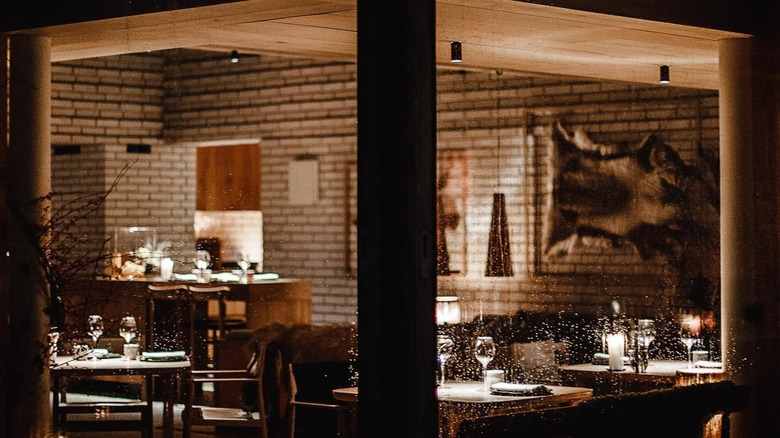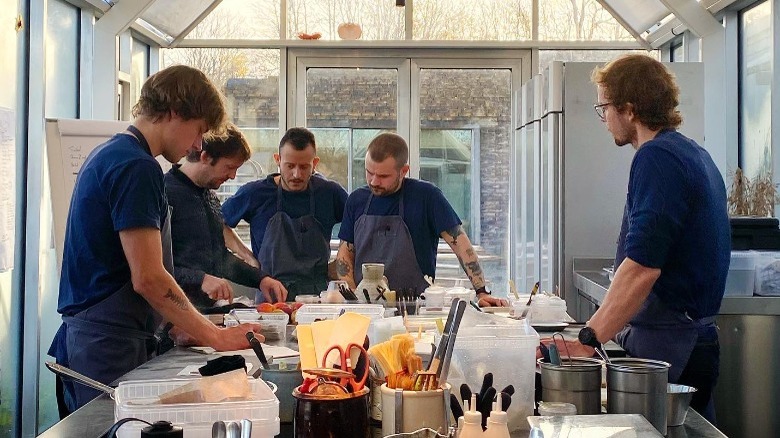Noma Interns Were Actually Forbidden From Expressing Joy
Earlier this month, chef René Redzepi announced that his three-Michelin star Noma restaurant will be closing for good. "It's unsustainable," he told The New York Times, explaining that he hasn't found a way to pay his highly qualified, extremely hardworking staff fairly for their long hours and expertise while keeping the restaurant afloat. Many applauded the Copenhagen-based chef for denouncing the exploitative culture of ultra-high-end restaurant kitchens. But many others had their eyebrows raised, considering that Redzepi is perhaps one of the greatest forces in fine dining, and Noma his opus. In critics' eyes, he's a cultural architect who's suddenly spurning the very culture he helped to create — which is largely why the internet is blaming the film "The Menu" for Noma's sudden closure.
Much of the backlash against Noma and Redzepi himself has been about the restaurant's reliance on unpaid labor. In 2019, The Financial Times reported that Noma relied on as many as 30 unpaid interns at a time, along with 34 paid chefs. Young cooks, hoping to launch their careers by having a brush with Redzepi's genius, worked 70-hour weeks while paying for their own accommodations in Copenhagen. While Noma's artful plating might evoke visions of a graceful kitchen, featuring an elegant ballet of chefs working in seamless harmony, former interns have revealed that was far from their experience.
A toxic working environment
"Yes, chef," is the phrase you'll hear most often in any high-end restaurant kitchen. The tradition of strict hierarchies in fine dining is a tale as old as time, and our culture has often glorified the savant male head chef in all of his anger, with a genius for food so great that we cannot ask him to treat others decently. Vice cites Gordon Ramsay as the most notable example of this, as the premise of many of his TV shows involves him wielding his rage against his kitchen staff, asking for nothing less than obedience and perfection. Redzepi is self-admittedly a part of this problem, acknowledging his part in making his kitchen a hostile work environment.
In a conversation with The New York Times, former unpaid Noma intern Namrata Hegde recalled that she was forbidden from laughing — or making any noise at all — while working in the kitchen. "I thought an internship was about me learning, as well about contributing to Noma's success. I don't believe that kind of toxic work environment is necessary," she shared. This supremely strict environment is something that Redzepi helped to enforce, like a cultivated piece of culinary algae. But rather than work to improve the culture of his restaurant, he is simply shutting it down. So for now, many are withholding kudos for Redzepi's denouncement of a world he heavily influenced — including J. Kenji López-Alt, who called out Noma for not changing its culture or closing its doors far sooner.

